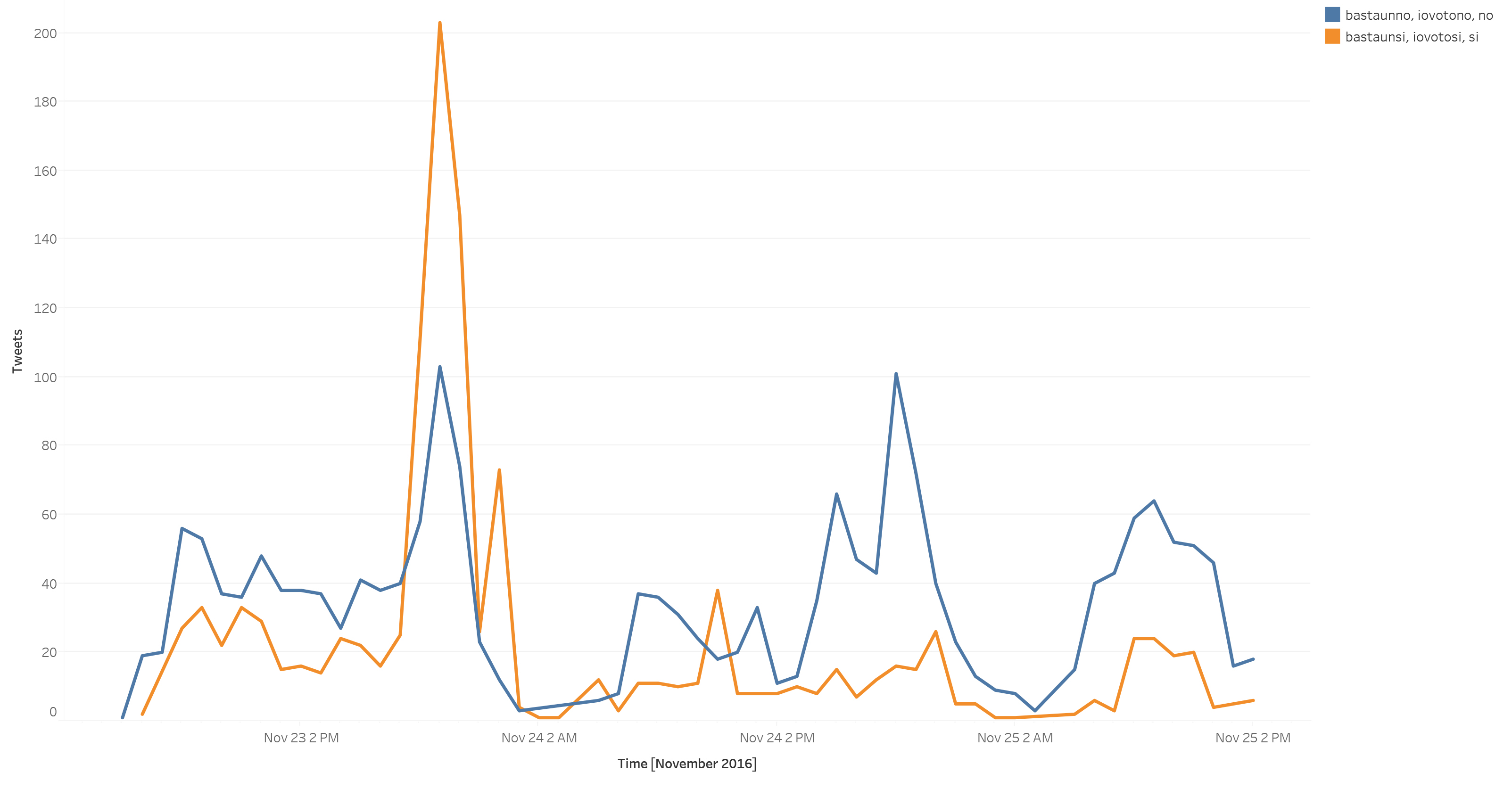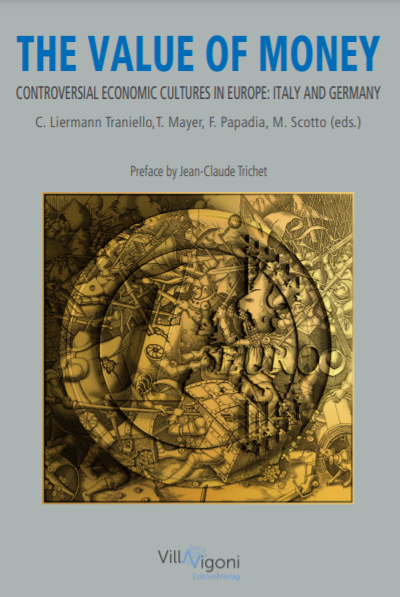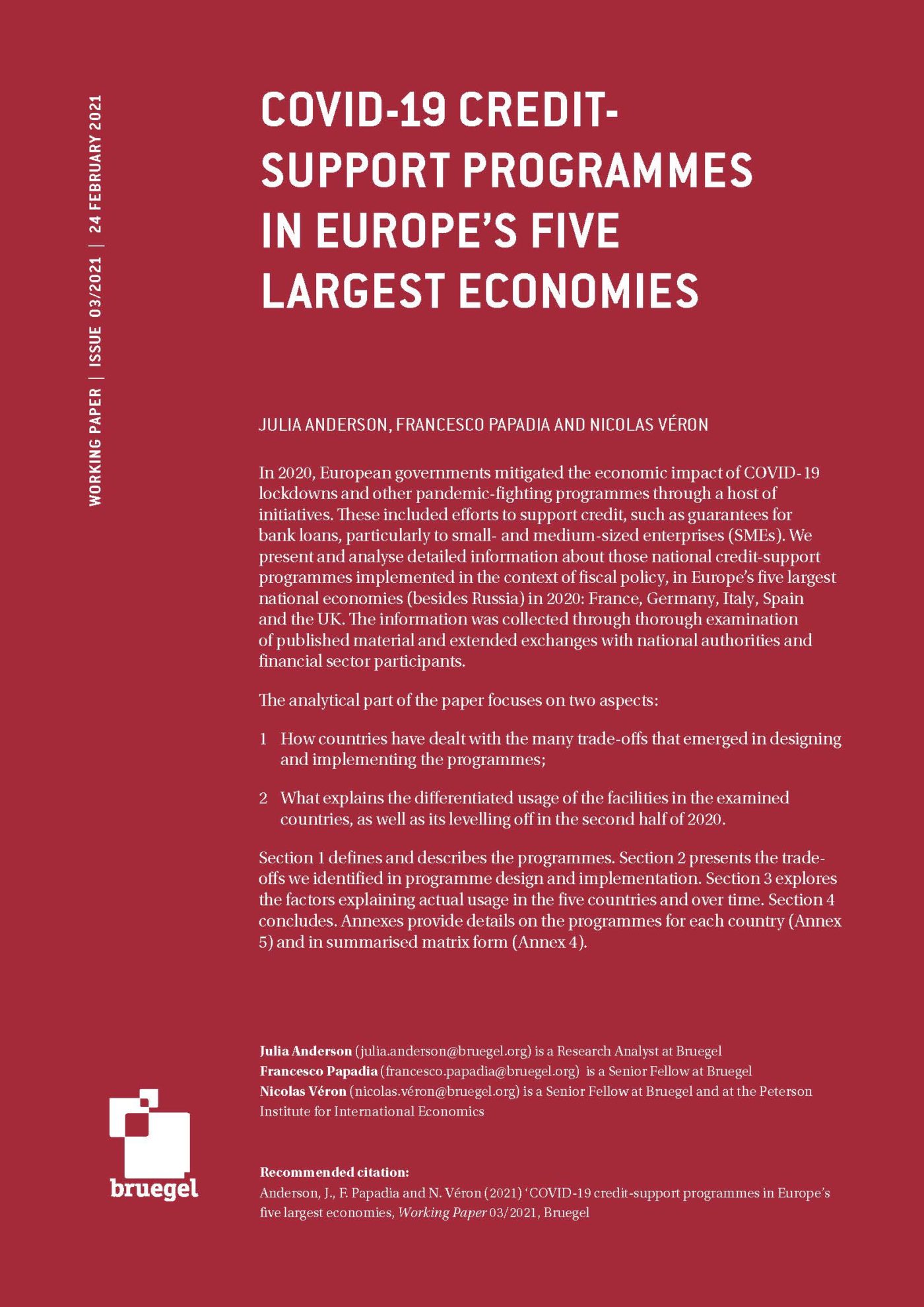Blog Post
Tweeting the Italian referendum: the hashtag war
We are monitoring an aggregate of twitter hashtags in the run up to the Italian Constitutional referendum of 4 December 2016.
Updated on 29 November 2016
This chart is based on an aggregate of 100,000+ tweets between 19 and 27 November. It confirms an overall mobilisation on twitter against the constitutional reform.

Interestingly, peaks are linked to TV shows of the evenings, showing an important correlation in the campaign between traditional media and Twitter, which acts as an amplifier of televised debates.
Updated on 25 November 2016
An initial comparison of two groups of hashtags: #bastaunsi #iovotosi #si VS #bastaunno #iovotono #no and based on a total of 26 431 Tweets from recent days shows the prominence of the “no” camp in social media during the week ahead of the vote.

The sample was collected by harvesting tweets containing the primary hashtags #referendum” and #renzi, which were the most prominent neutral political hashtags in Italy during the last week.
Interestingly the only peak that shows a majority for the “yes” aggregate correlates with the spike during the latest appearance of Prime Minister Renzi on the TV show Porta a Porta, during the evening of the 23 November.
Our chart does not contradict the probabilistic model based on polls by Alessio Terzi, which assigned a 73% probability to a “no” victory.
In a previous post we showed how the twitter sentiment was closer to predicting the Brexit outcome even about one week from the event, while the polls were still predicting a close victory for Remain up until the day of the vote. This time we are much closer to a done deal, it seems, but we will only know for sure a week on Sunday.
Republishing and referencing
Bruegel considers itself a public good and takes no institutional standpoint. Anyone is free to republish and/or quote this post without prior consent. Please provide a full reference, clearly stating Bruegel and the relevant author as the source, and include a prominent hyperlink to the original post.












